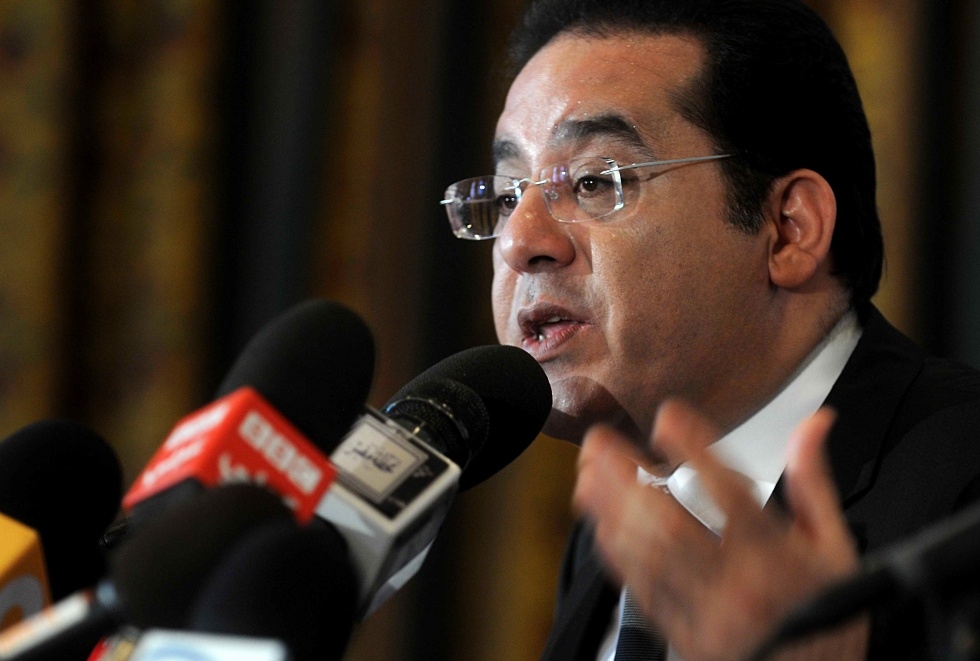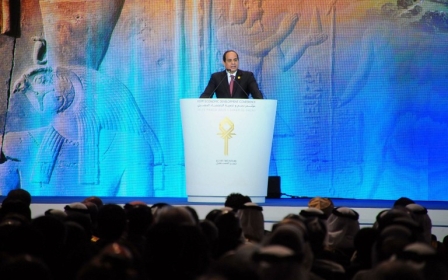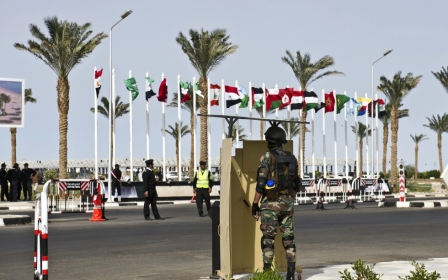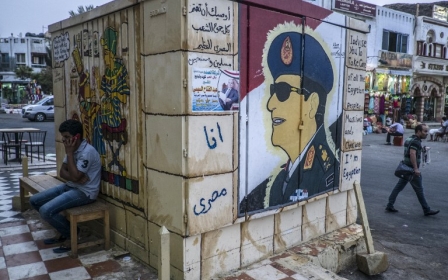Egyptian liberal opposition leader: Saudi donor money will dry out

Whatever public pledges Saudi Arabia made to Egypt at the international donor conference at Sharm el-Sheikh today, the money Egypt is getting from the Gulf state will dry up. “It will happen, but they will take their time,” Ayman Nour a leading and influential member of the liberal Egyptian opposition told the Middle East Eye.
Speaking outside Egypt, Dr Nour said that the secret recordings of private conversations in President Abdel Fattah al-Sisi’s private office had been a “grave insult” to Saudi Arabia. Dr Nour said he was against the withdrawing of investments from Egypt, but there should be rules.
Dr Nour said he was “100 percent” convinced that the tapes were genuine and that they had been recorded by someone inside the Egyptian military. “Inside the military, there are different opinions. The leaks now are from people inside the military. Their names are not important. The secret recording of conversations in Sisi’s office is an inside job. That is for sure. Only important people in the military can actually do that, and at the right time, the military could sacrifice Sisi,” he said.
Dr Nour said he had spent ten years in parliament campaigning for greater transparency and civilian oversight over the military budget. Eventually he resigned; "So I understood what was going on in the army. We have two states. The state of Egypt and the state of the army. Although the logic should be that the army is part of the executive authority, we have always had a pharoah, a semi god, and you have a god that is called the military state."
With the US and the EU absent, Saudi Arabia has an important role to play as an “honest mediator” who could be trusted by all sides to achieve an end to the political conflict in Egypt. Dr Nour elaborated a two-part plan to achieve this.
He said the reconciliation should start first between the forces of the January 25 revolution itself. They should draw up a “Magna Carta” guaranteeing the role of the state in ensuring democracy. These guarantees would allow all elements of the opposition to unite. Only then could the second stage of reconciliation take place between the revolution and the institutions of state. This would involve issues like release of prisoners, the annulment of death sentences and basic guarantees of freedom of expression. Sisi, Dr Nour said, would not allow this to happen unless there was significant international pressure on him to do so and this would come from the Gulf.
Dr Nour was bitterly critical of the debate taking place within some Islamist circles for more violent action against the Egyptian state, such as the burning of cars.
"They are in an arena where Sisi knows how to play. In turning violent they lose the support of a lot of people who were treated unfairly. They also increase the fears of the Copts, the liberals, the Europeans, the Saudis and the regional allies. The January revolution committed dozens of errors. The only right thing it did right was to preserve its non-violence. We are not Syria and we are not Libya and we cannot be like them. If we were, we would be sacrificing the last hope of taking Egypt back as an independent country.”
He put the inability of the opposition to unite, down to a fundamental lack of political experience. The people who had that experience were in jail or exiled.
He said that liberals in Egypt were going through a real crisis, in the middle of a conflict between Sisi and the Brotherhood and paying the price for something they had not done.
“We are like the concierge of the gambling club. We are not winning, not losing, but all the people walking down the streets insult us and we are not doing anything. The people around the table are the ones who win the money, and the ones who are losing. We are sitting downstairs, but we are the most visible to the people on the streets although we have nothing to do with the money on the gambling table. And this is our real crisis today. The people against us. Islamic forces were not very careful to have a relationship with us and we also have an internal crisis. All the liberal forces that were in the revolution were hit severely by the regime of course, whether by arrest, assassinations, elimination and the best example is my presence here, and Baradei [Mohamed El-Baradei, a former vice president of Egypt] in Vienna.”
New MEE newsletter: Jerusalem Dispatch
Sign up to get the latest insights and analysis on Israel-Palestine, alongside Turkey Unpacked and other MEE newsletters
Middle East Eye delivers independent and unrivalled coverage and analysis of the Middle East, North Africa and beyond. To learn more about republishing this content and the associated fees, please fill out this form. More about MEE can be found here.




